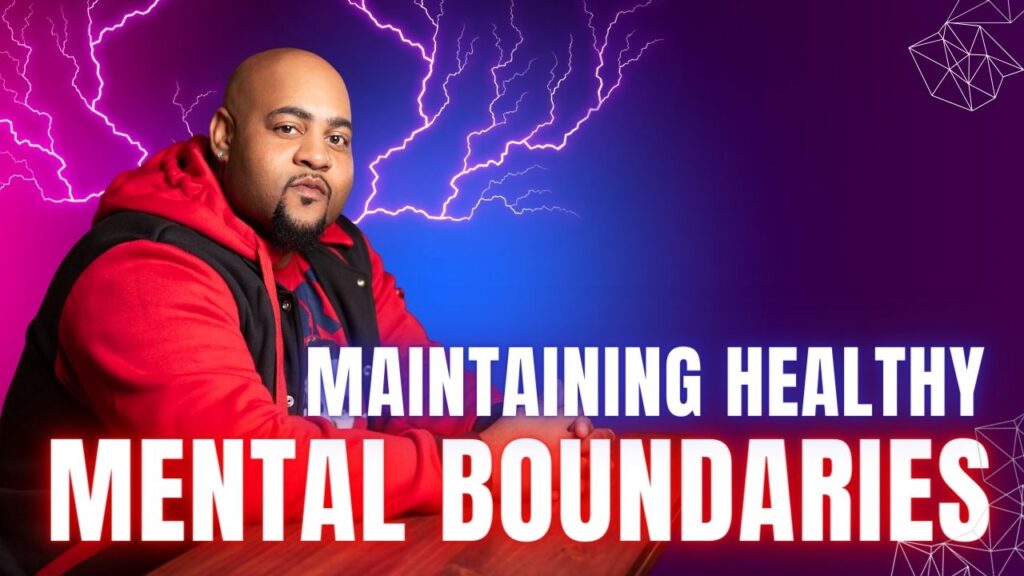
We all have our physical boundaries – the lines we draw around our personal space and property to protect ourselves and our possessions. But what about our mental boundaries? These are equally, if not more, important for our well-being and personal growth. Just as we need physical boundaries to safeguard our physical health, mental boundaries are essential to safeguard our mental and emotional health.
In this blog, we’ll explore the concept of mental boundaries, why they are crucial, and how to maintain healthy mental boundaries in various aspects of life.
Understanding Mental Boundaries
Mental boundaries are like an invisible fence that separates your thoughts, emotions, and beliefs from those of others. They define your personal space in the realm of ideas, emotions, and values. Healthy mental boundaries help you:
- Protect Your Identity: They ensure that you remain true to your values and beliefs, even when influenced by others.
- Preserve Emotional Well-Being: They prevent emotional overwhelm by allowing you to control the emotions you absorb from others.
- Maintain Healthy Relationships: They foster respectful and balanced interactions with others by respecting their boundaries and asserting your own.
- Promote Self-Care: They empower you to prioritize self-care without feeling guilty.
Signs of Weak or Poor Mental Boundaries
Before we delve into how to maintain healthy mental boundaries, let’s identify signs that yours might need strengthening:
- Overcommitting: If you find yourself saying “yes” to everything, even when it’s detrimental to your well-being, it could indicate weak boundaries.
- Emotional Drain: Feeling emotionally drained or constantly absorbing other people’s emotions is a clear sign of porous boundaries.
- Difficulty Saying “No”: If you struggle to decline requests or set limits, your mental boundaries might be weak.
- Lack of Self-Identity: If you’re easily swayed by others’ opinions and lose sight of your own values and beliefs, your boundaries may be compromised.
Maintaining Healthy Mental Boundaries
Now that we understand the importance of mental boundaries, let’s explore how to maintain and strengthen them:
- Self-Awareness: Start by understanding your values, beliefs, and limits. Knowing yourself is the foundation of healthy boundaries.
- Learn to Say “No”: Practice politely declining requests or offers that don’t align with your values or deplete your energy.
- Communicate Openly: In relationships, express your feelings, needs, and boundaries clearly and kindly. Encourage others to do the same.
- Limit Exposure to Negative Influences: Recognize toxic relationships or environments and distance yourself from them when possible.
- Prioritize Self-Care: Make self-care a non-negotiable part of your routine. This could include exercise, meditation, hobbies, or spending time with loved ones.
- Set Technology Boundaries: Manage your digital life by limiting screen time and controlling notifications to reduce information overload.
- Seek Support: If maintaining healthy mental boundaries feels challenging, consider seeking support from a therapist or counselor.
- Practice Mindfulness: Develop mindfulness practices to stay present and connected to your inner self. This can help you notice when your boundaries are being tested.
- Learn from Experience: Reflect on past experiences where your boundaries were tested or violated, and use those lessons to reinforce your boundaries moving forward.
- Stay Flexible: While boundaries are crucial, they should also allow for healthy adaptability and growth. Be willing to adjust them when necessary.
Maintaining healthy mental boundaries is an ongoing process. It requires self-awareness, practice, and a commitment to your well-being. Remember that it’s okay to prioritize yourself and your mental health. By doing so, you’ll not only protect your own emotional and mental well-being but also foster healthier and more balanced relationships with those around you.

